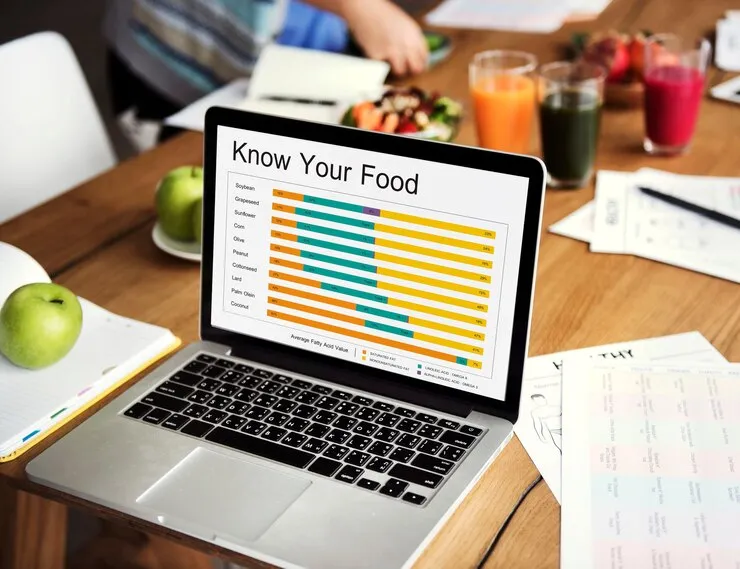In the digital age, having an attractive and well-designed website is no longer enough to attract customers to a restaurant. This is where SEO (Search Engine Optimization) comes into play, acting as an essential tool to stand out in search engines and capture the attention of potential diners. SEO for restaurants is particularly crucial because it focuses on local visibility, meaning it’s aimed at people looking for dining options in their area. In this guide, we’ll explore the most effective strategies to optimize your restaurant’s SEO, helping you attract more customers and increase your reservations.
Identify Your Target Customers
Before starting any SEO strategy, it’s vital to understand who your target customers are. Identifying your audience allows you to tailor your content and optimize your website to attract the right people—those who are most likely to visit your restaurant. Here’s how to do it:
1. Defining the Ideal Customer Profile
Start by creating an ideal customer profile, considering factors such as age, gender, income, location, and culinary preferences. For example, if your restaurant is a casual pizzeria, you might target families and college students in your local area. On the other hand, a fine dining restaurant might focus on middle to upper-class professionals looking for an exclusive dining experience.
2. Analyzing Customer Behavior
Use tools like Google Analytics to analyze who visits your website. Look at metrics such as age, gender, interests, and geographic location. This will give you an idea of who is interacting with your content and whether it aligns with your ideal customer profile.
3. Competitor Analysis
Observe what type of customers your competitors attract and how they structure their content to draw them in. This can give you insights on how to position yourself uniquely in the market and attract a similar audience or discover an underserved niche.
4. Audience Segmentation
Not all of your customers will have the same needs or preferences. Segment your audience into different groups based on their characteristics and behaviors. For instance, you could have a segment of customers looking for quick lunches during the week and another interested in romantic dinners on weekends.
5. Personalizing Content Strategy
Once you have a clear understanding of who your target customers are, tailor your website content and marketing strategies based on their interests and needs. For example, if you’re targeting young professionals, you can focus on happy hour promotions and quick lunch menus.
6. Continuous Monitoring and Adjustment
Customer preferences and behaviors change over time, so it’s important to continually monitor your audience and adjust your SEO strategy accordingly. Tools like Google Search Console and direct customer surveys can help you stay updated on your audience’s preferences.
By correctly identifying your target customers, you not only optimize your SEO efforts but also ensure you’re attracting the right people to your restaurant, increasing the likelihood of turning visits into sales.
On-Page Optimization: Keys to Success
On-page optimization is the foundation of SEO and refers to the actions you can take directly on your website to improve its visibility in search engines. Here are the most important aspects:
Effective Use of Keywords
Identifying and using relevant keywords for restaurants is the first step. Think of terms like “Italian restaurant in [your city]”, “best Chinese food near me”, or “romantic restaurant in [your city]”. These are the phrases your potential customers will type into Google. It’s important to integrate these keywords naturally into titles, headings, and the general content of your site.
Website Structure
Ensure that your website is well-structured and easy to navigate. Include clear sections for the menu, locations, opening hours, and reservations. A simple navigation enhances user experience and also makes it easier for search engines to index your content.
Meta Descriptions and Title Optimization
Each page on your site should have a unique title and an optimized meta description. These are the snippets of text users see in search results, so they should be appealing and include the main keywords.
Creating Relevant Content
A blog on your website can be a great way to attract traffic. You can write about recipes, restaurant events, chef stories, or the history behind your most popular dishes. This content not only attracts visitors but also improves your SEO by increasing the number of keywords on your site.
Image Optimization
High-quality images are crucial for a restaurant’s website, but it’s also important to optimize them. Use descriptive file names and add alt text that includes relevant keywords. This not only helps with SEO but also improves the site’s accessibility.
Local SEO: Mastering Nearby Searches
Local SEO is essential for restaurants, as most potential customers are looking for dining options near their location. Here’s how to master local SEO:
Google My Business
Creating and optimizing your Google My Business profile is one of the most effective strategies for local SEO. Make sure all information (name, address, phone number, opening hours) is accurate and up-to-date. Add attractive photos and respond to reviews to maintain a good relationship with customers.
Online Reviews
Reviews are crucial for restaurants. Encouraging satisfied customers to leave a review can improve your visibility and attract more diners. Additionally, responding to reviews, both positive and negative, shows that you care about the customer experience.
Citation and NAP
Consistency in citations (mentions of your business on other websites) is key. Make sure your name, address, and phone number (NAP) are the same across all online listings. This helps avoid confusion and improves your local SEO.
Appear on Google Maps
For a restaurant, appearing on Google Maps is vital. Most local searches display map results, and being present there can significantly increase your visibility. Ensure your business is properly categorized and that the coordinates are correct.
Link Building and Off-Page SEO
Off-page SEO refers to all the actions that take place outside your website that impact its ranking in search engines, with link building being one of the most important strategies:
High-Quality Links
Obtaining links from high-authority websites, such as food blogs or restaurant directories, is crucial. These links act as votes of confidence toward your site, improving your ranking in search engines.
Collaborations with Influencers
In the food industry, working with local food bloggers or influencers can be highly beneficial. These individuals can create content about your restaurant and link it to your website, which not only improves your SEO but also attracts their audience.
Social Media
Although links on social media don’t directly influence SEO, an active presence on platforms like Instagram or Facebook can increase traffic to your website, which indirectly improves your ranking. Additionally, interactions and content sharing can generate additional links to your site.
Examples of How to Create High-Quality Links:
- Guest Posting: One of the most effective ways to get high-quality links is by writing guest articles on blogs related to the culinary industry. For example, you could collaborate with a local blog about food and culture to write an article on the importance of sustainable cuisine, including a link to your seasonal menu that highlights your sustainable practices.
- Collaborations with Food Blogs: Invite local food bloggers to your restaurant for a dinner or special event. In return, they may write a review on their blogs with a link to your website. Make sure these bloggers have a good reputation and decent traffic, ensuring the links are high quality.
- Local and National Directories: Register your restaurant in high-quality directories, both local and national, related to the food industry. For example, sites like Yelp, TripAdvisor, or city-specific directories listing top restaurants can offer valuable links. Ensure these directories are high-authority and relevant.
- Offering Useful Resources: Create useful and original resources on your website, such as wine pairing guides or exclusive chef recipes, that can attract natural links from other sites that find your content valuable. For example, a comprehensive guide on pairing wines with certain types of food could be linked by wine-focused blogs or online culinary magazines.
- Participation in Events and Awards: Participate in local food events or contests and ensure these events mention and link to your restaurant on their websites. For example, if you participate in a local food festival and your restaurant wins an award, the event organizers are likely to mention you on their website, providing a high-quality link.
- Interviews and Media Mentions: Offer interviews to journalists or participate in local radio and television programs. These platforms usually publish online articles with links to the businesses mentioned. For example, if a local newspaper interviews you about culinary trends in the region, they might include a link to your website in the article published on their digital edition.
- Collaborations with Local Businesses: Form alliances with other local businesses, such as wineries, gourmet shops, or farmers markets. For example, you could create a special menu in collaboration with a local winery, and both could promote it on their respective websites, linking to each other.
- Creating Viral Content: Create content that has the potential to go viral, such as a video showing the preparation of an iconic dish from your restaurant or a community initiative you’re involved in. If the content is engaging and relevant, other websites will naturally link to it. For example, a video showing a unique cooking challenge at your restaurant could be widely shared, generating links from various blogs and social media.
Using Structured Data: Rich Snippets and Schema Markup
Implementation of schema.org
Structured data is a way of tagging information on your website so that search engines can better understand the content. By using schema.org, you can specify details such as the type of cuisine, opening hours, price range, and reviews, which can generate rich snippets in search results.
Rich Snippets
These are search results that show additional information directly on the Google results page, such as review stars, hours, or images. Implementing rich snippets can increase your click-through rate by making your site stand out among search results.
Monitoring and Analyzing SEO Performance
Key Tools
Using tools like Google Analytics, Google Search Console, and SEO tools like SEMrush or Ahrefs is essential for monitoring your SEO strategy’s performance. These tools allow you to see which keywords are working, how much traffic your site is getting, and where your inbound links are coming from.
Data Interpretation
Analyze the data to see what’s working and what needs improvement. For example, if you notice that a specific keyword is driving a lot of traffic, you can optimize more pages with variations of that keyword. If a page has a high bounce rate, consider improving its content or design.
Continuous Adaptation
SEO is not a one-time effort; it requires constant monitoring and adjustments. As search engine algorithms and consumer trends change, it’s important to stay up-to-date with SEO best practices and adapt your strategy accordingly.
Future Trends in SEO for Restaurants
Voice Search
With the rise of voice assistants like Siri, Alexa, and Google Assistant, voice search is changing how people search for restaurants. It’s crucial to optimize your content for conversational queries that people might voice, such as “Where can I find a good Mexican restaurant near me?”
Artificial Intelligence and SEO
Artificial intelligence is beginning to play a role in how search engines rank websites. Understanding how AI evaluates content relevance and adjusts SEO in real-time can give you a competitive edge.
Preparing for the Future
Stay informed about new technologies and changes in search algorithms. Participating in SEO forums, attending webinars, and following specialized blogs will help you stay on top of what’s coming and adapt your SEO strategy accordingly.
Benefits of Using SEO for Restaurants
Implementing a solid SEO strategy not only improves your restaurant’s online visibility but also offers a range of tangible benefits that can significantly boost your business. Here are some of the key benefits:
Greater Visibility in Local Searches
Most restaurant-related searches are conducted locally, and appearing in the top results of these searches is crucial. Well-optimized SEO ensures that your restaurant is visible to people nearby looking for dining options, increasing the likelihood that they will choose you over the competition.
Increase in Reservations and Sales
With better visibility in search engines, more people find your restaurant when looking for a place to eat. This not only attracts more visitors to your website but also translates into increased reservations, whether for dining in or takeout orders.
Improved User Experience
Part of SEO involves optimizing your website’s structure and content to make it easier to navigate and use. This improves the user experience, which in turn can increase the time visitors spend on your site, reduce bounce rates, and increase conversions.
Building Credibility and Trust
Consumers tend to trust businesses that appear in the top positions of search results. A good ranking not only makes you more visible but also associates your brand with credibility and authority in your local area.
Reduced Advertising Costs
While paid advertising can generate immediate traffic, SEO offers a long-term and more cost-effective solution. Once your website is well-positioned, it can maintain that ranking with ongoing maintenance, without the constant need to spend on paid ads.
Leveraging Reviews and Opinions
SEO strategies, especially in the local sphere, include managing reviews on platforms like Google My Business. Positive reviews not only improve your ranking but also serve as testimonials that can influence the decisions of new customers.
Improved Brand Awareness
Constantly appearing in the top search results makes users familiar with your restaurant, even if they don’t immediately click on your website. This brand recognition can turn searchers into customers as they remember your name in future searches.
Adaptation to New Trends
SEO forces you to stay updated with the latest trends and technologies, such as voice search and artificial intelligence, allowing you to remain competitive in a constantly changing market.
Competitor Analysis
Through SEO tools, you not only improve your own site but can also monitor your competitors. This allows you to adjust your strategy to capitalize on others’ weaknesses and build on your strengths.
Long-Term Continuous Improvement
SEO is not a quick fix, but its benefits are long-lasting. Over time, a well-executed SEO strategy continues to drive traffic, increase conversions, and enhance your restaurant’s online profile, even with minimal adjustments and maintenance.
The Key to Ongoing SEO Success for Restaurants
Implementing these SEO strategies will not only position your restaurant at the top of search engine results but also give you a competitive advantage in a crowded local market. The benefits of SEO go beyond simply increasing visibility; they contribute to building a strong brand, boosting sales, and enhancing customer satisfaction.
In the long run, investing in SEO is one of the most cost-effective steps a restaurant can take. It will allow you to maintain an effective and relevant digital presence, adapt to changing trends, and ensure that your restaurant is the first choice for local diners.






